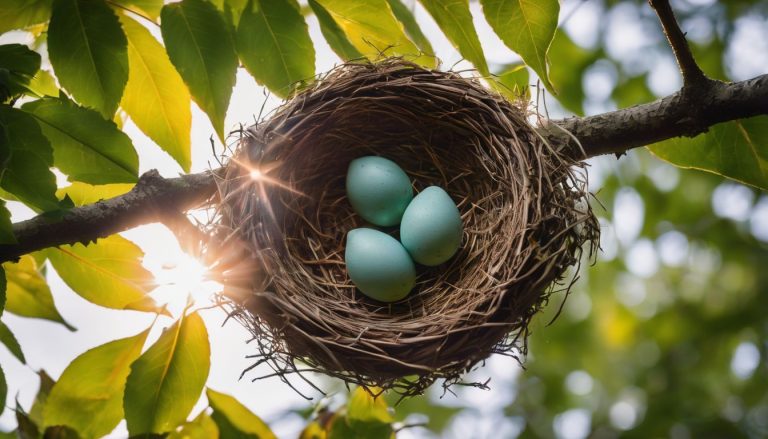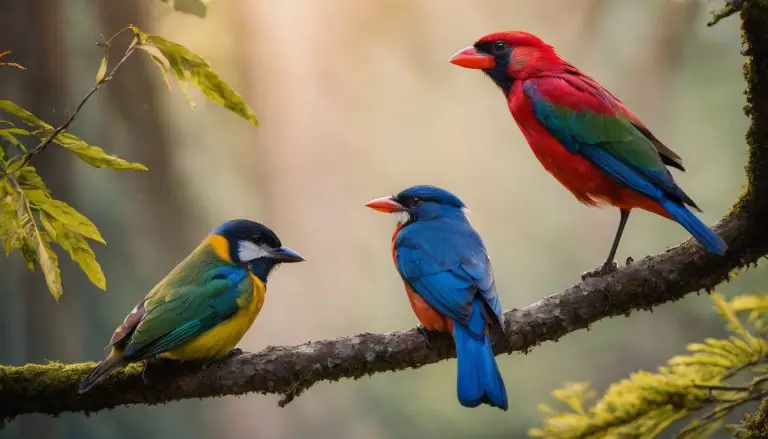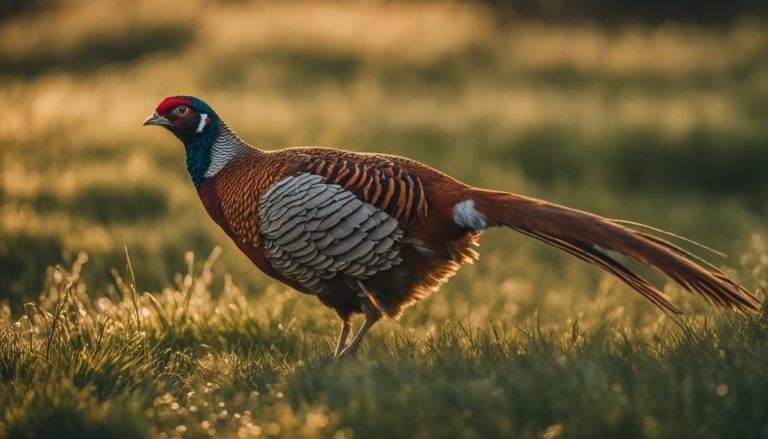Isn’t it fascinating how our African Grey Parrot’s vivacious squawks and uncanny ability to mimic noises can pique our curiosity? If you’re anything like me, this may have sparked questions about their average lifespan.
You bet I had the same burning inquiries! This article unfolds the captivating life expectancy of these extraordinary birds – whether they’re braving the wild or adding joy to your home as a beloved pet.
Together, let’s embark on an enriching expedition into understanding our feathery friends’ lifecycle, equipping us with knowledge to provide them a long, gratifying life full of chirps and chatter.
Let’s spread our wings and venture deeper into the intriguing existence of African Grey Parrots!
Key Takeaways
- African Grey Parrots have an average lifespan of 40 to 50 years, with some living up to 60 years or more in captivity.
- In the wild, their average lifespan is around 22.7 years, but they can live longer if they have enough food and water.
- Factors that affect their lifespan include proper nutrition, a suitable environment, regular healthcare, and minimizing stressors.
- It’s important to provide them with a balanced diet rich in fruits, vegetables, nuts, and pellets formulated for their nutritional needs.
Lifespan of African Grey Parrots
African Grey Parrots have an average lifespan that varies depending on whether they are in the wild or kept as pets, and there are several factors that can influence their longevity.
Average lifespan
African Grey parrots have a long life. On average, they live between 40 and 50 years. The ones living in the wild can reach up to 22.7 years old. Those kept as pets often live even longer, with some reaching up to 75 years! This is much longer than most pet birds who only live for about 10-15 years.
African Greys are indeed special creatures with impressive ages.
Wild lifespan
In the wild, African Grey parrots have an average lifespan of around 22.7 years. They face many challenges in their natural environment, such as predators and diseases, which can reduce their lifespan.
However, if they are able to find enough food and water, African Grey parrots can live longer. Some have been known to reach impressive ages of up to 50 years or more in the wild. It is important for us as carers to appreciate the beauty and uniqueness of these birds and work towards preserving their natural habitats so that they can continue to thrive for generations to come.
Lifespan as pets
As pet owners, we want our African Grey parrots to live long and healthy lives. The lifespan of an African Grey parrot in captivity can vary between 40-60 years with proper care. These intelligent birds require a lot of attention and mental stimulation to thrive.
With the right environment, diet, and veterinary care, they can live up to 75 years or more. It’s important to provide them with a balanced diet rich in fruits, vegetables, nuts, and pellets specifically formulated for their nutritional needs.
Regular vet check-ups are essential for monitoring their health and addressing any potential issues early on. By providing them with a comfortable living space that includes plenty of toys and social interaction, we can help ensure that our beloved African Grey parrots have a long and happy life as our companions.
Factors that affect lifespan
There are several factors that can affect the lifespan of African Grey parrots. Proper nutrition is one important factor. Providing a balanced diet with fresh fruits, vegetables, nuts, and pellets can help ensure their overall health and longevity.
The environment and living conditions also play a role in their lifespan. It’s important to provide a spacious and stimulating environment for them to prevent boredom or stress-related issues.
Regular healthcare is another crucial factor. Regular check-ups with an avian veterinarian can help detect any potential health problems early on and provide appropriate treatment.
Additionally, providing clean water, avoiding exposure to toxins or harmful substances, and minimizing stressors in their environment are all essential for maintaining optimal health.
Care and Factors Influencing Lifespan
Proper nutrition, a suitable environment, appropriate living quarters, and regular healthcare are crucial for ensuring the longevity of African Grey Parrots. Want to know more about how these factors influence their lifespan? Read on!
Nutrition
Proper nutrition is essential for the health and longevity of African Grey parrots. These magnificent birds need a balanced diet to thrive. They should be fed a variety of fresh fruits, vegetables, grains, and seeds to ensure they receive all the necessary vitamins and minerals.
It’s important to provide them with a mix of different foods to meet their nutritional needs. Additionally, it’s crucial to offer clean water for drinking and bathing regularly throughout the day.
A healthy diet plays a significant role in supporting their immune system and overall well-being, helping them live longer lives in captivity.
Environment and conditions
African Grey parrots need a suitable environment and conditions to thrive and live a long, healthy life. They require a spacious living area with plenty of room to move around and exercise.
It’s important to provide them with toys and mental stimulation to keep their minds active. These intelligent birds also need access to fresh food and water at all times. A balanced diet consisting of fruits, vegetables, pellets, and seeds is essential for their well-being.
Additionally, maintaining proper temperature and humidity levels in their living quarters is crucial for their comfort. Regular veterinary check-ups are necessary to ensure they stay healthy and receive any necessary treatment promptly.
Living quarters
The living quarters of African Grey parrots play a crucial role in their overall well-being and lifespan. These magnificent birds need spacious and comfortable enclosures that allow them to exercise and move around freely.
It is recommended to provide a cage with dimensions of at least 3 feet wide, 2 feet deep, and 4 feet tall.
Inside the cage, there should be perches made of natural wood branches to promote foot health, as well as plenty of toys and enrichment activities to keep them mentally stimulated.
African Grey parrots are highly intelligent creatures that require mental stimulation to thrive.
It’s important to place the cage in an area where they can interact with their human caretakers while being protected from drafts or direct sunlight. The temperature inside the room should be maintained within a range of 65-80 degrees Fahrenheit.
Healthcare
Taking care of the healthcare needs of African Grey parrots is essential for ensuring their long and healthy lives. Regular check-ups with an avian veterinarian are important to monitor their overall health and detect any potential issues early on.
Providing a balanced diet that includes fresh fruits, vegetables, pellets, and seeds is crucial for their nutritional needs. Ensuring they have access to clean water at all times is also vital.
Additionally, maintaining a clean living environment, free from harmful toxins or chemicals, helps prevent respiratory problems and other illnesses. By prioritizing their healthcare needs, we can help African Grey parrots live happier and healthier lives for many years to come.
The Life Stages of an African Grey Parrot
The life stages of an African Grey Parrot include hatchling, nestling, fledgling, weanling, juvenile, and adulthood.
Hatchling
When an African Grey parrot is first born, it is called a hatchling. These little birds are completely dependent on their parents for food and care. They have soft feathers and their eyes are closed.
The hatchling spends most of its time in the nest, growing and developing under the watchful eye of its parents. It takes several weeks for the hatchling to grow into a nestling, at which point it becomes more active and begins to explore its surroundings.
But during this early stage, the hatchling relies on its parents for warmth, protection, and nourishment as it grows into a healthy young bird.
Nestling
Nestling is the first stage in the life of an African Grey parrot. It begins when the baby bird hatches from its egg and lasts for about three weeks. At this stage, the nestling relies completely on its parents for food, warmth, and protection.
The parents feed it regurgitated food that is rich in nutrients to help it grow. During this time, the nestling’s eyes are closed, and it is unable to move around much. Its feathers start to develop slowly, but it remains mostly naked and vulnerable.
The nestling stays in the nest until it becomes a fledgling and is ready to explore the world outside.
Fledgling
As a fledgling, an African Grey parrot is just learning to fly and becoming more independent. This stage occurs when they are around 10-14 weeks old. Fledglings have their adult feathers but may still rely on their parents for food and protection.
During this time, they practice flying and strengthen their wings. It’s important for caregivers to provide a safe environment with plenty of space for the fledgling to explore and exercise its newly acquired flight skills.
Caregivers should also continue to offer a balanced diet rich in fruits, vegetables, grains, and protein to support the fledgling’s growth and development.
Weanling
As a weanling, an African Grey parrot is in the early stages of becoming self-sufficient. At this stage, they have recently transitioned from being dependent on their parents for food to learning how to eat on their own.
Weanlings are typically around 10-12 weeks old and are still developing their feathers and motor skills. They may still require some assistance and guidance from their caregivers when it comes to feeding and socialization.
It’s important during this time to provide them with a balanced diet and plenty of opportunities for exercise and mental stimulation to support their growth and development.
Juvenile
During the juvenile stage, African Grey parrots are transitioning from being dependent on their parents to becoming more independent. This stage typically occurs when they are around 3 to 6 months old.
Juvenile African Grey parrots have a lot of energy and curiosity as they explore their surroundings and develop important skills for survival. They may test boundaries and start to assert their independence during this time.
It’s crucial for caregivers to provide them with a safe environment, proper nutrition, and socialization opportunities to help shape their behavior and development.
Adulthood
Once an African Grey parrot reaches adulthood, they have typically reached their full size and physical development. This stage usually occurs around the age of 3 to 4 years old. By this time, their vibrant plumage has fully emerged, showcasing the beautiful grays and reds that are characteristic of this species.
In terms of behavior, adult African Grey parrots tend to be more independent and self-sufficient compared to their younger counterparts. They have already established their personalities and can display a wide range of intelligent behaviors, such as problem-solving and mimicking human speech.
With proper care and attention, these magnificent birds can live for several decades in captivity, providing companionship and joy for many years to come.
Conclusion
In conclusion, African Grey parrots have an average lifespan of 40 to 50 years. With proper care and attention, they can live up to 60 years or more in captivity. These magnificent birds are known for their intelligence and can bring joy and companionship for many years.
So, if you’re considering getting an African Grey parrot as a pet, be prepared for a long-lasting bond with these remarkable creatures.
FAQs
1. What is the average lifespan of African grey parrots as pets?
The average lifespan of African grey parrots as pets is 50-60 years, but with proper care they may live longer.
2. How long does an African grey parrot live in the wild?
In the wild, the lifespan of an African Grey Parrot can be up to 50 years on average.
3. Do African grey parrots live less when alone?
Being alone doesn’t directly reduce an African Grey Parrot’s longevity. However, they need social interaction for a healthy life which impacts their lifespan.
4. What changes in captivity affect the lifespan of an African grey parrot?
When in captivity, factors like diet and care quality can impact an african grey parrot’s life expectancy positively or negatively.
5. Who was the oldest known living african gray parrot?
The oldest known living african gray is said to have lived for over 80 years!
I’m Owen Featherstone, your bird-watching buddy and enthusiast of all things feathered! Armed with binoculars and a notebook, I’m on a never-ending quest to uncover the mysteries of our avian friends. Whether it’s deciphering melodies in a dawn chorus or finding out if hummingbirds ever take coffee breaks, I’m here to share the delightful world of birds with you. So grab your virtual wings, and let’s explore the skies together!







